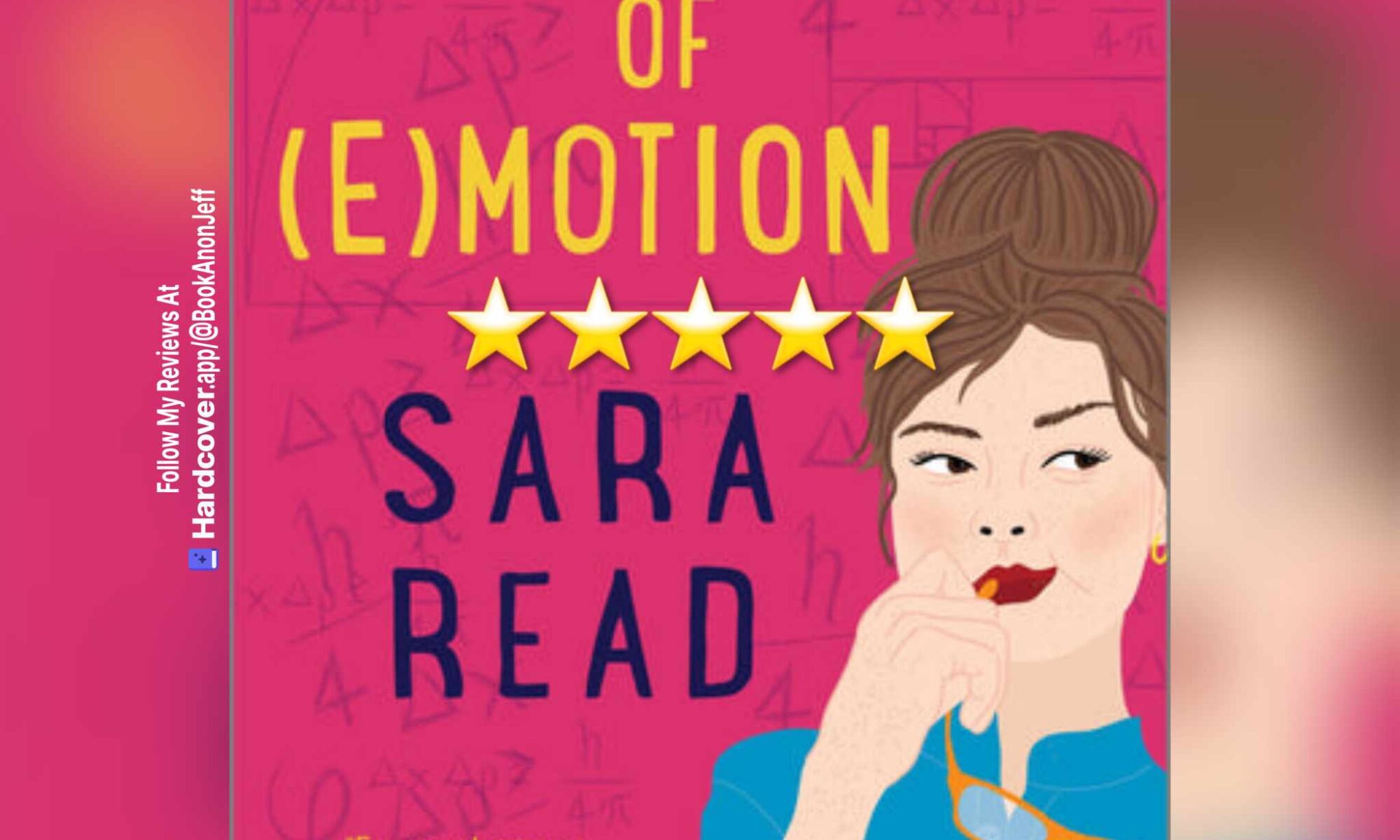For this blog tour, we’re looking at a strong, layered romance with an atypical lead. For this blog tour, we’re looking at Principles Of (E)motion by Sara Read.
Here’s what I had to say on the review sites (Hardcover.app, TheStoryGraph, BookHype, Goodreads):
Strong, Layered Romance With Atypical Lead. Up front, I’m a guy that got a degree in a mathematics related field (Computer Science) and because of the quirks of the way I attended college (also, as our lead here, at 16yo,fwiw) I came within just a couple of semesters of getting two other separate mathematics related degrees at the same time. Like our lead, I too had a flash of utter brilliance at that young age (well, in my case I was 20 yrs old) that is now, 20 yrs later, seemingly being realized in the real world. (Damn I wish I had applied for a patent, but I thought nothing of it other than as a paper for a Bachelor’s Degree level class – even if Senior Year.) And yes, like our lead, I’ve also known close friends of that era later struggle with various legal issues. So maybe the book worked so well for me *because* I am in a rare position of having a similar enough background to *really* feel it. Perhaps. But I also think these issues and situations are still prevalent enough and general enough that even if you’ve never been in or near situations with these exact particulars, you’ve been in or around similar *general* situations (strains on parental relationships, lonely, questioning yourself even as a 30+ yr old adult who is “supposed” to “know what you’re doing” by now, etc).
And that is what makes this book particularly great. Yes, it is messy. Yes, it can be convoluted at times. Yes, it may or may not feel particularly “swoon worthy” romantic at times. Hell, there are times when it feels like our lead exists for little more than sex. (That is rare, btw, but yes, “clean”/ “sweet” crowd… you’ve now been warned that this may be a bit racy for your tastes.) But all of this, to me, makes it feel all the more “real”. Because let’s face it, our lives rarely feel any of those things all the time (thank God, really).
And while some may scream at me “But I don’t read romance to feel REAL!!!!! I *WANT THE FANTASY DAMMIT!!!!*”, my argument here is that because this *is* more real, *knowing* that this book fulfills all romance requirements I am presently aware of means that despite the realism, *you still get the fantasy as well*. You still get that happy ending – at least one that works for this couple in this story in this world. You still get that “awww” and that catharsis that everything works out in the end, no matter how shitty and messy it gets in between.
And to me, that makes the story *stronger*. *Because* it was more real and more heartfelt.
This was my first book from this author. It very likely will not be the last.
Very much recommended.
After the jump, an excerpt from the book followed by the “publisher details” – book description, author bio, and social media and buy links.
Continue reading “#BlogTour: Principles Of (E)motion by Sara Read”



